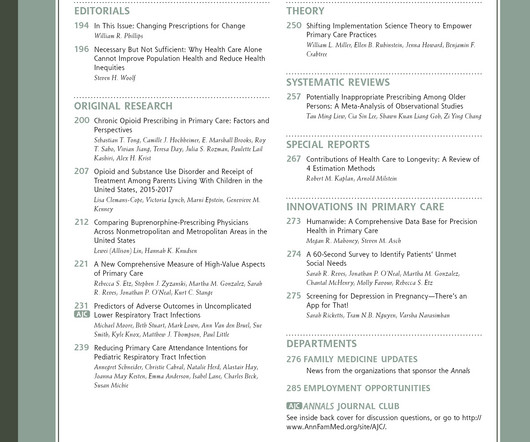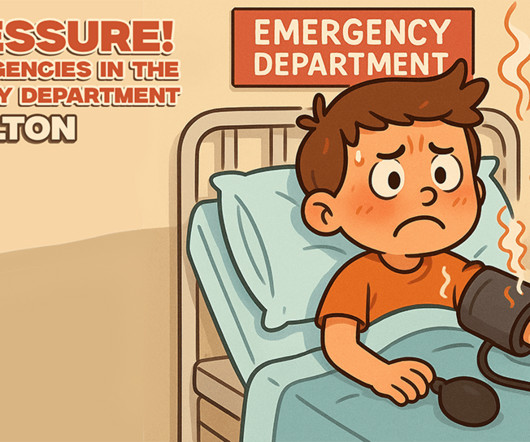Outcomes of Guidelines from Health Technology Assessment Organizations: A Systematic Mixed Studies Review [Systematic review, meta-analysis, or scoping review]
Annals of Family Medicine
NOVEMBER 20, 2024
Context: Health Technology Assessment (HTA) organizations determine the value of health technologies such as medical devices, lab tests, or medications. Setting: Community-based primary health care. positive, neutral, and negative impact) are presented for 17 types of outcomes. Descriptive statistics (e.g.,













Let's personalize your content